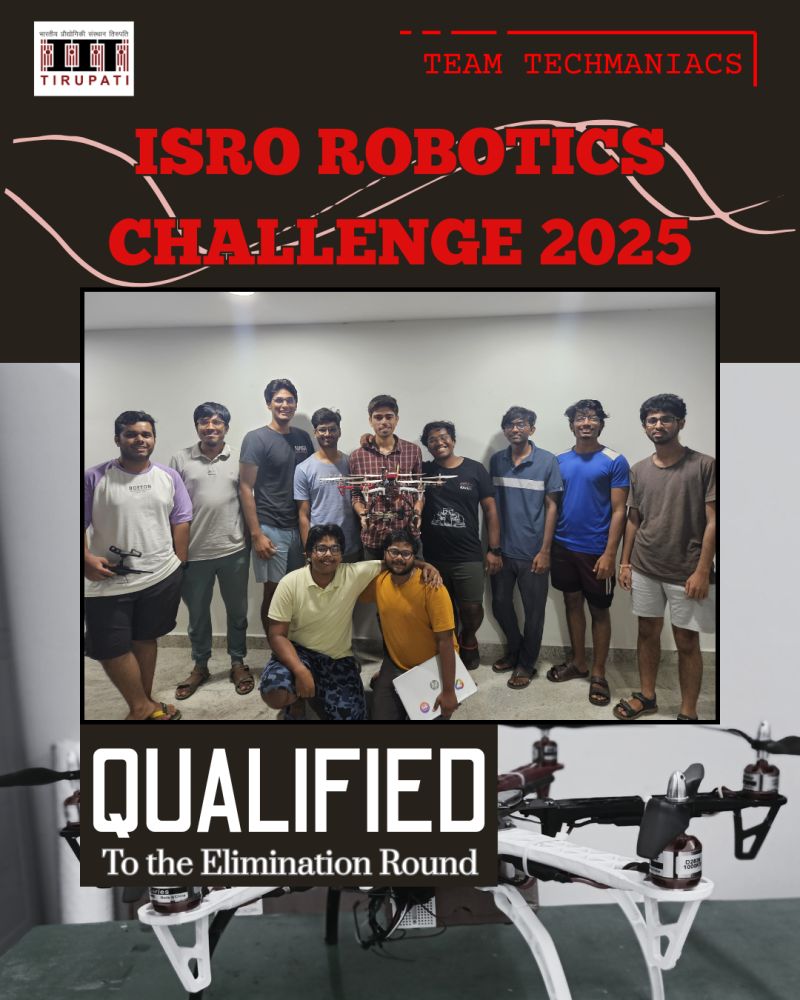Developed an autonomous drone for a Mars-analog GPS-denied environment as part of a national-level competition by U.R. Rao Satellite Centre, ISRO. Qualified among the top 37 teams nationwide for the elimination round.

Introduction
This project was developed for the IRoC-U 2025 competition organized by the U.R. Rao Satellite Centre, ISRO, which challenges teams to design and implement autonomous systems for Mars-analog conditions. The primary goal was to enable a drone to navigate and localize itself in a GPS-denied environment, similar to what would be encountered on the Martian surface. Our approach focused on using onboard sensor data for localization and control. A key aspect of the project involved fusing visual and inertial inputs to estimate the drone’s position in real time. The system was designed to handle the challenges of unreliable external references and the need for precise indoor navigation. From over a hundred participating teams nationwide, ours advanced to the elimination round—ranking among the top 37 selected. The competition not only tested technical skills in autonomy and perception but also emphasized robustness and reliability under mission-critical constraints. While the project is ongoing, the experience so far has been both technically enriching and practically challenging.
